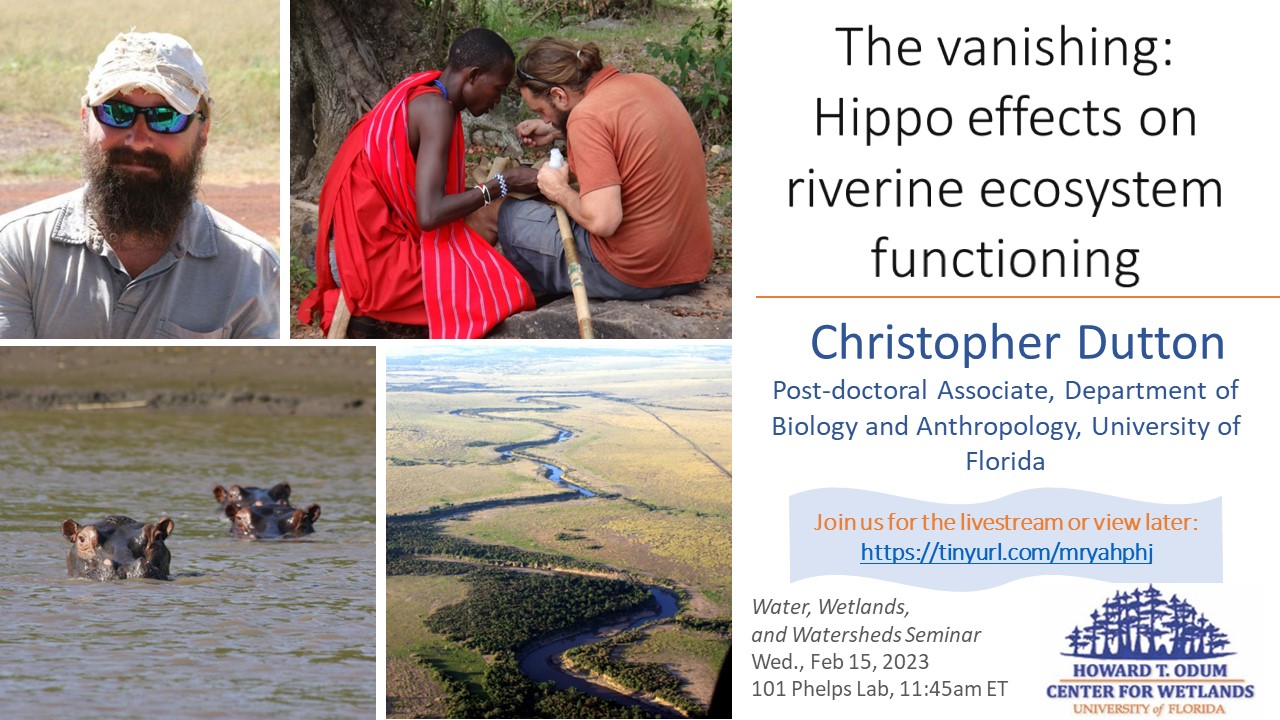
Christopher Dutton, Post-doctoral Associate, Department of Biology and Anthropology, University of Florida
Join us for the livestream February 15th, 11:45am ET: https://youtube.com/live/NoM_R9_Mtig?feature=share
(Please visit our YouTube channel main page for the stream if there are any issues with the direct link.)
ABSTRACT
Animals can alter the biogeochemical cycling and functioning of ecosystems. In aquatic ecosystems, these effects typically occur through feeding, excretion and egestion of organic matter and nutrients, or bioturbation of sediments. Loading of resource subsides from one ecosystem to another can have variable effects depending upon the recipient ecosystem characteristics. Evidence exists for altered decomposition and nutrient cycling in environments in response to subsidies of organic matter and nutrients through excretion and egestion by animals, but most studies have not explicitly examined effects on biogeochemical processes or the role of the externally transplanted animal gut microbiome in mediating those processes. My research has found that hippo subsidies alter the biogeochemistry and microbial communities within hippo pools and periodic flushing flows scour the bottom of hippo pools, sending a hypoxic wave downstream affecting whole ecosystem processes. Hippo subsidies introduce heterogeneity in space and time within river networks, a function that is increasingly lost from many rivers with the recent large-scale reduction in the range of the hippo and the extinction of other semi-aquatic megafauna.
BIO
Dr. Christopher Dutton has been a Post-doctoral Associate at the University of Florida in the Anthropology and Biology Departments since 2019. Dr. Dutton is an interdisciplinary scientist working at the nexus of ecology, bioinformatics, biogeochemistry, microbiology, and low-cost open-source technologies where his research focuses on how human and non-human animals and their microbial symbionts (microbiomes) interact with one another and with the environment. He received his MESc from the Yale School of Forestry in 2012 and his PhD from the Department of Ecology and Evolutionary Biology at Yale University in 2019.
postcard
